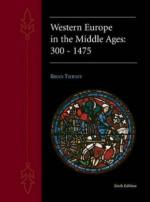|
This section contains 886 words (approx. 3 pages at 300 words per page) |

|
The Venerable Bede. After the fall of Rome and the retreat of learning into the monasteries, Europe produced few notable scholars who can truly be called scientists until about the twelfth century. One exception was Bede (circa 673-735), who became known among medieval scholars as the Venerable Bede for his great learning and piety. He entered the monastery of St. Peter in Wearmouth, on the rocky northeast coast of England, at the age of seven, and two years later he moved to the nearby abbey of Jarrow, where he spent the remainder of his life. There he wrote important ecclesiastical histories, world chronologies, and commentaries on scripture, grammar, and music—as well as three long works on what now would be considered natural science. De natura rerum (On the nature of things, written circa 703) is an encyclopedic treatise on all manner...
|
This section contains 886 words (approx. 3 pages at 300 words per page) |

|




